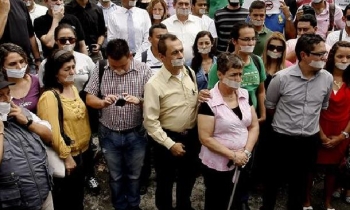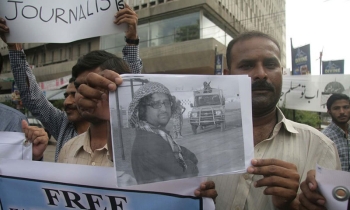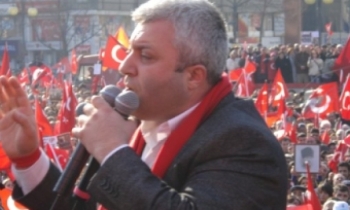The Iranian government has taken advantage of Israel’s offensive against the Gaza Strip to crack down harder on its critics, closing an opposition newspaper and dispatching its supporters to step up a campaign of intimidation against human rights lawyer Shirin Ebadi.
The Commission for the Authorisation and Surveillance of the Press ordered Kargozaraan’s suspension on December 31 under articles 5 and 6 of the press law for “inciting individuals and groups to act against the security, respect and interest of the Islamic Republic” and for “defending Israel’s actions in Gaza and its crimes against the Muslim population.”
The mouthpiece of a political movement of the same name that supports former President Ali Akbar Hashemi Rafsandjani, Kargozaraan published a report on December 30 (the first anniversary of its launch) quoting a press release about Gaza by a student association condemning the violence “on both sides and the use of civilians as hostages.”
“Any pretext will do for the Iranian government to silence news media and dissidents,” Paris-based Reporters sans Frontières (RSF) said. “As usual, it has exploited the international situation to settle scores with what remains of the non-governmental media and with human rights activists. The closure of the daily Kargozaraan and the attack on the office and home of Nobel peace laureate Shirin Ebadi are classic examples.”
Thirty newspapers were suspended in Iran in 2008, 22 of them by the Commission for the Authorisation and Surveillance of the Press, an offshoot of the Ministry for Culture and Islamic Guidance that has responsibility for censorship. The ministry is the Ahamadinejad government’s right hand in its campaign against independent media.
Militiamen organised by the Revolutionary Guards have been demonstrating for several days against the Israeli offensive. On January 1, about 100 of them demonstrated outside Ebadi’s home, shouting slogans critical of her and her Human Rights Defenders Centre, which the police closed down on December 21 on the grounds that it did not have interior ministry permission.
The January 1 demonstration came three days after police raided Ebadi’s law office. The threats to Ebadi’s activities and to her family have been condemned by the European Union, United States, Canada and other leading western governments.









